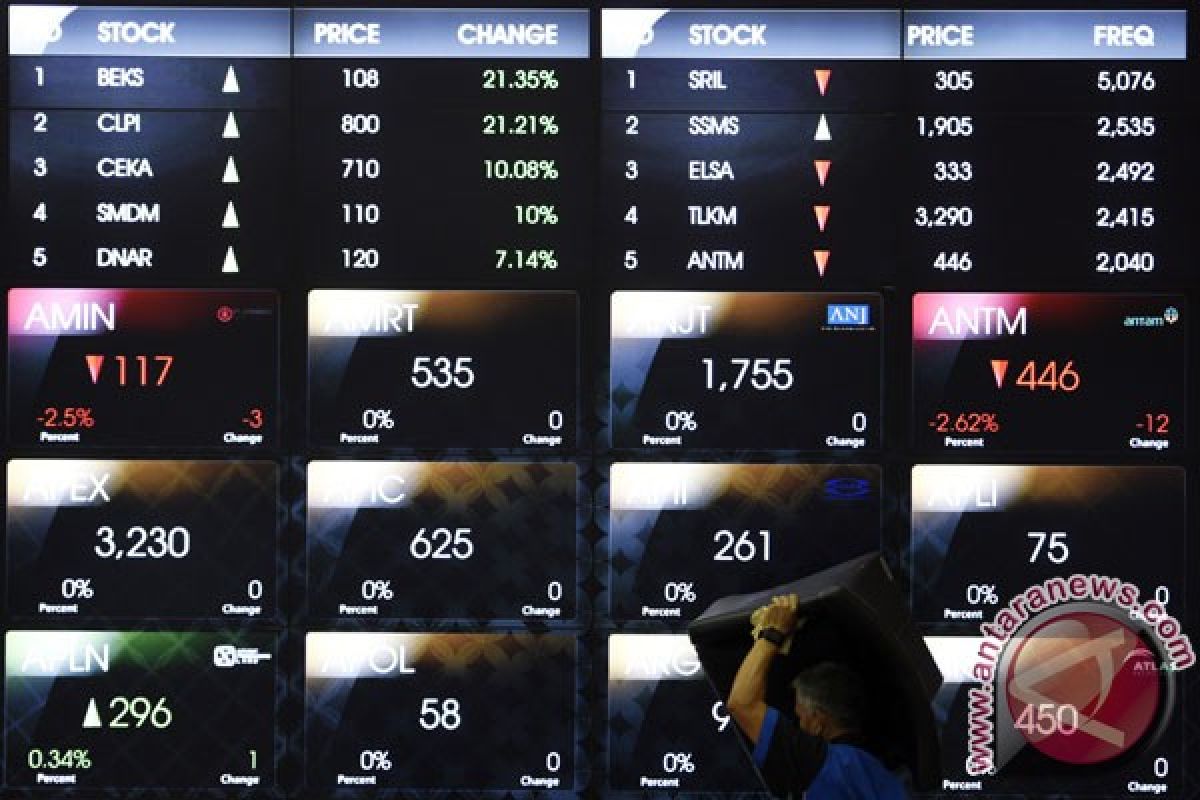I am trying to analyze average transactions daily at BEI. Earlier daily transactions averaged Rp5.5 trillion."Semarang (ANTARA News) - Commodity Futures company Valbury said repatriated fund had given no impact yet on the Jakarta composite index (IHSG).
"The hope is repatriated fund would be invested in local shares but it is not as expected," Vice President of Valbury Willy Leo S said here on Wednesday.
Willy noted currently IHSG of the Indonesian Stock Exchange (BEI) is still at the level of 5,400 points, but he said he was optimistic the IHSG would increase later.
He said investors also eye investment in bonds, but there has not been positive impact in real value.
So far the IHSG movements are still weak in comparison to rupiah movements, he added.
Meanwhile, economist from the state University of Diponegoro Akhmad Syakir Kurnia attributed the rupiah strengthening to positive effect of the governments tax amnesty program.
"This is the market sentiment in responding to the success in the tax amnesty program. It depends on the government to maintain the good momentum," Akhmad said.
Unexpected by many the first phase ending Sept 30 of the tax amnesty program was a big success with the government earning Rp97.2 trillion in penalty or more than 50 percent of the target of Rp165 trillion until the end of the program in March 2017.
Around Rp3,500 trillion worth of assets were declared on which tax was not paid so far but they would be potential sources of tax revenue hereafter.
Now the program is entering the second phase until December this year to be followed with the third or last phase from January until March 2017.
"The success in the first phase would give positive signal and the condition is expected to continue until the end of the program," Akhmad said.
Earlier, Chief Executive of BEI Tito Sulistio said a significant amount of funds has flowed into the stock market.
"I am trying to analyze average transactions daily at BEI. Earlier daily transactions averaged Rp5.5 trillion. Now the daily transactions are valued at Rp8 trillion. Is that the result of the tax amnesty program? It could be, as significant amount of funds are already flowed in," Tito said.
Based on data at BEI, the IHSG on July 1, 2016 was 4,971.58 points. By the end of the first period of the tax amnesty program on Sept. 30, the index shot up to 5,364.80 points or an increase of 7.9 percent over the period.
With the tax amnesty program, the government hopes that large funds in repatriation would flow into the country and part of the fund would go to the BEI.
Repatriation, however, totaled only Rp137 trillion in the first period of the tax amnesty program.
Many rich Indonesians are known to have large funds parked abroad either for commercial benefit or to evade taxes. Some of the funds were converted into shares or investment in various business areas.
Inflows of funds to the stock market would improve liquidity of the stock market with the fund owner expected to buy shares of the listed companies. The IHSG, therefore, would climb higher.
Tito said the frequency of transactions at BEI also increased to 253,810 much exceeding 70,000 transactions recorded by Singapore stock exchange.
"The tax amnesty program has drawn the wide attention among industrial players at the stock market as the impact of the policy is quite strong on the countrys economy," he said.
Share transactions would drive market capitalization to reach Rp6,000 trillion . Based on data at BEI, by 30 September 2016 market capitalization reached Rp5,799 trillion.
(Uu.H-ASG/F001)
Editor: Priyambodo RH
Copyright © ANTARA 2016






